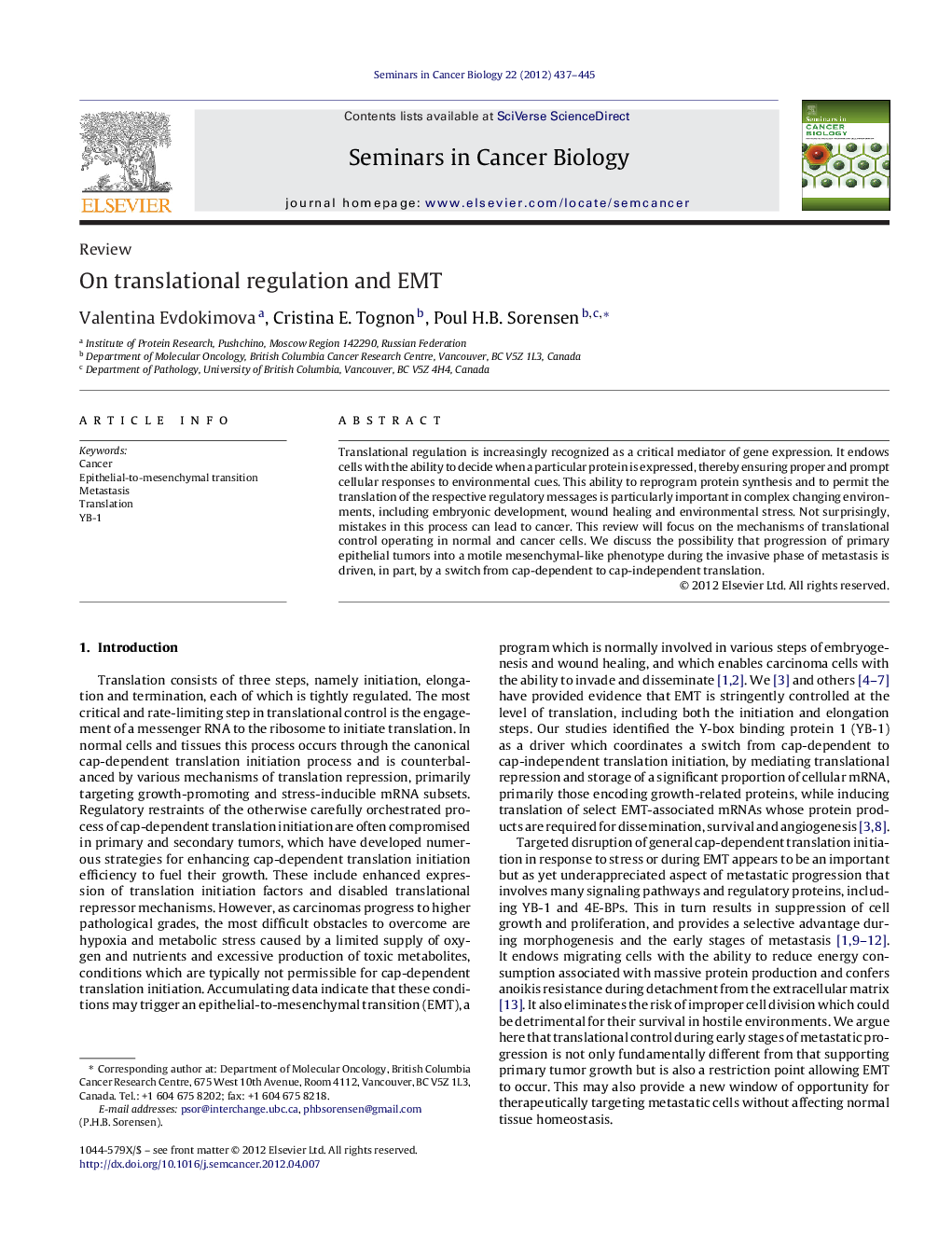| Article ID | Journal | Published Year | Pages | File Type |
|---|---|---|---|---|
| 2023770 | Seminars in Cancer Biology | 2012 | 9 Pages |
Translational regulation is increasingly recognized as a critical mediator of gene expression. It endows cells with the ability to decide when a particular protein is expressed, thereby ensuring proper and prompt cellular responses to environmental cues. This ability to reprogram protein synthesis and to permit the translation of the respective regulatory messages is particularly important in complex changing environments, including embryonic development, wound healing and environmental stress. Not surprisingly, mistakes in this process can lead to cancer. This review will focus on the mechanisms of translational control operating in normal and cancer cells. We discuss the possibility that progression of primary epithelial tumors into a motile mesenchymal-like phenotype during the invasive phase of metastasis is driven, in part, by a switch from cap-dependent to cap-independent translation.
